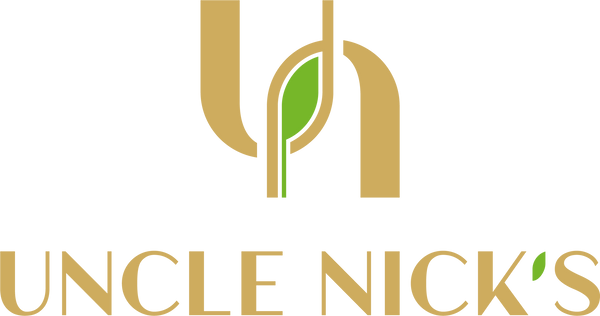As a flexible dieting IIFYM coach, I often get this question: "Can I start flexible dieting if I'm a vegan or vegetarian?"
The simple answer is yes , flexible dieting can be used in conjunction with any dietary preference because its philosophy states that people can eat foods they prefer and still reach their weight loss and/or fitness goals.
Eating vegan or vegetarian is no different. However, there are some adjustments that must be made to make reaching your macro goals more realistic and manageable.
3 Tips for Vegan or Vegetarian Flexible Dieting
1. Don't be afraid to adjust your macro ratios.
One of the most challenging aspects of doing this diet as a vegan or vegetarian is hitting the recommended protein target, especially if you are weight training or strength training.
While eating more protein has been shown to increase the rate at which muscle mass can be added, the human body can still build muscle with fewer grams of dietary protein although the process will take longer.
There are many great athletes that are vegan and you would never know it by looking at their physiques.
For vegetarians and vegans, a more realistic macro ratio would be 25-30% protein 40-45% carbs and 30-35% fat.
This will make hitting your macro targets much more achievable eating whole foods since most plant-based protein-rich foods also come with their fair share of carbs.
2. Buy a good vegan protein supplement.
For those more interested in building muscle and strength training, a plant-based protein supplement can really help with getting some extra protein in. These supplements have come a long way over the years and there are many brands that taste delicious.
I suggest you choose a brand that is at least 20-30 grams of protein per scoop and one that's low in carbs and fat. (You'll get plenty of those two macros through whole food sources.)
3. Be mindful of your fiber grams.
Since plants are often rich in fiber, vegans and vegetarians often get a lot over the course of the day. This is one of the reasons a vegan diet can be so healthy. However, if you are consuming 30-50 grams of fiber a day, you may need to eat more carbs to compensate for the undigestable nature of fiber.
On nutritional labels, fiber is included in a food item's total carbs but much of the fiber you eat isn't digestible and doesn't provide the body with energy.
If you are active and trying to lose weight, it's important that you are fueling that activity properly – avoiding too much of a calorie deficit.
Vegans should really eat about 50-75% of their fiber intake back as more carbs. For example, if you eat 50 grams of fiber in a day, you should eat an additional 37.5 grams of digestible carbs to compensate for the undigestable carbs that are included in your total carb goal.
The other option is to track net carbs but this can be challenging since most tracking apps track total carbs and not all foods have been calculated to show their net carb amount.

Sample Vegan Meal Plan
Here's a sample rest day and a sample exercise day from a vegan flexible dieting meal plan. The calories and macros for the day are also included at the end of each day.
Rest Day
Breakfast
- 1/2 cup cooked oatmeal (1/4 cup raw)
- 1/2 cup frozen blueberries
- 1 scoop vanilla Vega vegan protein powder (or similar)
Snack
- 1 banana with 2 tablespoons natural peanut butter
Lunch
- 1 cup Campbell's Organic Lentil Soup (or similar)
- 1.5 cups broccoli
- 1 ounce walnuts
Dinner
Stir fry: Saute the veggies in a nonstick skillet until they are slightly tender. Toss in the Seiten and seasonings. Stir till heated. Serve over cooked quinoa.
- 5 ounces Seiten
- 2 tsp olive oil
- 1 cup chopped mushrooms
- 1 red bell pepper
- 1 cup onion
- 1/2 cup cooked quinoa
- Garlic, ginger, and soy sauce to taste.
- 2 clementines (to offset undigestable fiber grams)
Total approx. 1547 calories
Macros:
- Protein: 99 g (25%)
- Carbs: 173 g (45%)
- Fat: 51 g (30%)
- Fiber: 34 g
Exercise Day
Breakfast
- 1 slice whole wheat toast
- 1/2 cup vegan refried beans
- 1/2 medium sliced avocado
Snack
- 1 ounce almonds
Lunch
- 6 ounces Tofu
- 4 cups spring salad mix
- 2 tablespoons balsamic vinaigrette dressing
- 1 medium apple
Snack
- Vegan protein shake (2 scoops) (Vega) (preferably after your exercise)
Dinner
- 1 cup white beans
- 2 cup zucchini
- 3 mini sweet peppers
- Sauté the above with 2 tablespoon olive oil
- 2 ounce whole wheat pasta (1 oz offsets the undigestible fiber grams )
- Top with 1 cup organic marinara (Trader Joe's)
- 2 squares dark chocolate (72%)
Total: approx. 1940 calories
Macros:
- Protein: 119 g (25%)
- Carbs: 204 g (42%)
- Fat: 72 g (33%)
- Fiber: 42 g
Getting Enough Protein
Even with adjusting macros in a way that requires less protein, some may struggle with knowing what to eat to get their protein grams in.
Plus, there's the added difficulty of making sure you are getting enough complete protein since many plant protein sources lack all the essential amino acids.
A good rule of thumb is to combine plant proteins. Usually eating a legume along with a grain does the job nicely.
Examples:
- Beans and rice
- Lentils and rice
- Hummus on whole grain toast
Seeds and nuts are high in protein and hemp seeds, pumpkin seeds, and quinoa are among some that contain complete proteins.
Here are some good resources for identifying good sources of plant proteins. (Some lists include dairy and eggs since some vegetarians eat those foods.)
The more densely the food is in protein the less impact it will have on your other macros.
Being a vegan or vegetarian isn't a deal breaker when it comes to flexible dieting and this is just another way this eating method embraces flexibility.
With a little planning and adjusting you can be successful in reaching your diet and fitness goals regardless of whether or not you eat meat.
Written by Ted Kallmyer for Healthy Eater and legally licensed through the Matcha publisher network. Please direct all licensing questions to legal@getmatcha.com.


1 comment
URL:
https://fandbrecipes.com/vegan-salmon/
HTML Code:
Vegan Salmon
Comment:
Hi! I love how informative and great your articles are. Can you recommend any other blogs that share blogs that share information on Vegan Salmon or vegan recipes in general? Thanks a lot!